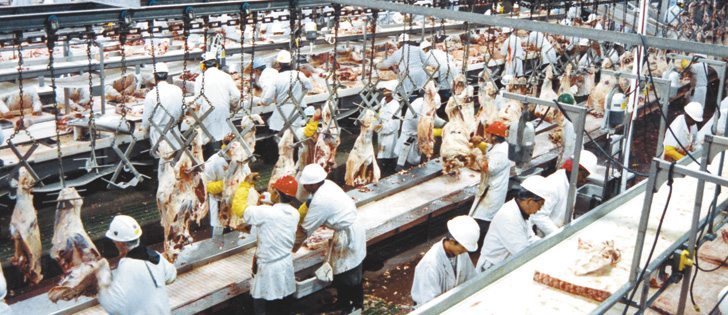There are signs in recent weeks that Europe is becoming serious about speeding up genetically modified crop approvals and softening its zero tolerance stance for unapproved traits.
In an Oct. 15 speech to the European Policy Centre, European Union farm commissioner Mariann Fischer Boel said she is unhappy with how the regulatory system is implemented.
Every month GM crops receive a clean bill of health from the European Food Safety Authority only to get bogged down in a system where member states cannot reach a qualified majority on authorization votes.
Read Also

Organic farmers urged to make better use of trade deals
Organic growers should be singing CUSMA’s praises, according to the Canadian Chamber of Commerce.
“So first the relevant committee decides nothing, then the council decides nothing and finally the commission grants authorization as laid down in the rules. This process swallows huge amounts of time,” Fischer Boel said.
She called it a flawed system where a political decision is “being knocked around like a ball in a slow-motion tennis match” and led to a situation this summer where about a dozen ships containing 180,000 tonnes of U.S. soybeans were turned away because they contained trace amounts of an unapproved GM corn that the European Food Safety Association deemed safe.
Exporters are reluctant to ship any more soybeans because they can’t ensure it will meet Europe’s strict zero tolerance rules, which is hurting Europe’s already struggling $236 billion livestock sector.
“Let’s end this ludicrous situation. We must use the system that we ourselves created in a rational way. We must vote on the basis of science, not prejudice, when deciding whether to authorize new GM products,” Fischer Boel said.
“And as soon as we can, we must also push ahead with our discussions on how to deal with very small unwanted traces of GMOs that are found in shipments. I’m not talking about ending our policy of zero tolerance in this area, that is out of the question. What I’m talking about is applying this principle in a way that works in practice, with a technical threshold for measurement.”
Her comments and similar ones from other high-ranking commission officials have elicited mixed reaction.
“(Fischer) Boel is on a personal crusade to weaken EU GM rules for no good reason,” said Helen Holder from Friends of the Earth Europe. “She and her other colleagues at the commission should instead be supporting European farmers and food producers to access uncontaminated products.”
Brian John of GM-Free Cymru said the commission is trying to dismantle the regulatory system to appease multinational corporations and feed exporters.
“We never thought that we would witness a European commissioner saying in effect, ‘never mind the rules or the risks to public health and animal welfare – let’s do what the seed traders and patent owners want,’ ” he said.
Barry Hall, president of the Flax Council of Canada, a commodity group embroiled in a GM contamination incident that has halted trade with Europe, welcomed Fischer Boel’s comments.
“It should be somewhat positive that somebody who is right in the middle of it is blasting her own people,” he said. “Maybe the dam will break. But boy, I’ll tell you, there has been a lot of pressure on it for a long time and it hasn’t done any good. We can only hope.”
Dennis Stephens, consultant with the Canada Grains Council, is also pleased to hear an increasing number of senior European Commission officials and EU countries suggesting in public forums they need to find a path forward.
He is particularly struck by how vocal European farm organizations have become.
“One of the more significant changes you’re seeing now in the European environment is that the farmers themselves are concerned because they cannot obtain sufficient protein for their animal feeding operations,” he said.
Farm groups feel Fischer Boel and her colleagues haven’t gone nearly far enough. A coalition of some of Europe’s leading crusher, feed manufacturer, agricultural trade and general farm groups issued a joint news release Oct. 20 condemning the commission and its member states for failing to take action to speed up the GM authorization process at the Oct. 19 Farm Council meeting.
They said the looming crisis in the EU food and livestock sectors will cost the industry $5.5 to $7.9 billion.
“The ball is once again firmly in the court of (EU health) commissioner (Androulla) Vassiliou, who must do what she has consistently resisted doing – come forward urgently with a proposed technical solution on zero tolerance for food and feed,” said the European farm groups.
Stephens said the proposal amounts to keeping the zero tolerance policy intact but creating a technical tolerance that recognizes variability in existing sampling and testing methodologies, which would result in a 0.2 or 0.3 percent tolerance for low level contamination. He said any talk along those lines is a positive development, but like anything to do with Europe’s regulatory system, it’s going to take time.
“We’d just like to see (changes) come faster. It’s a bit like watching an iceberg melt.”















